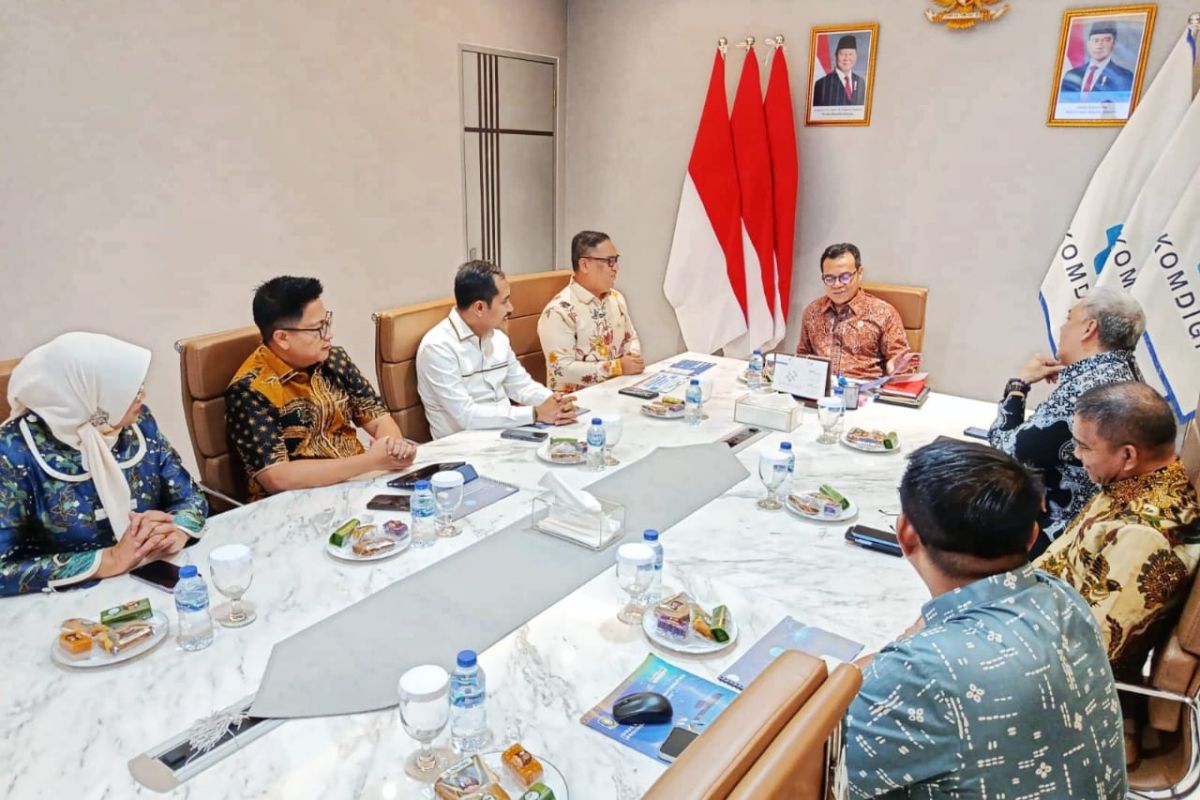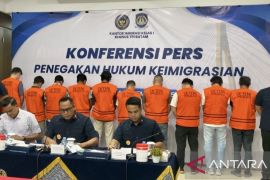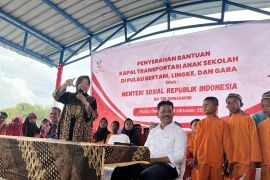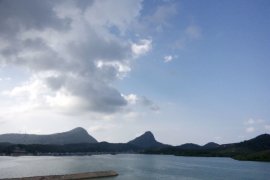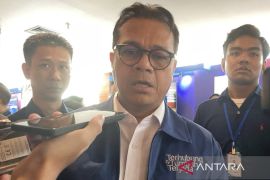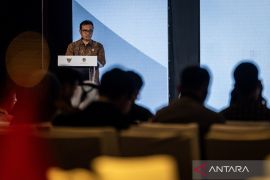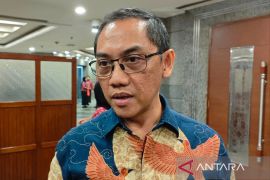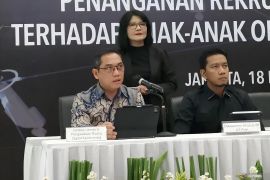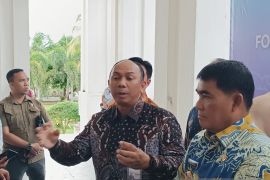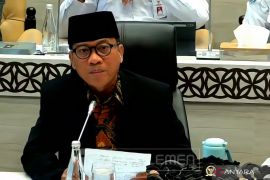During a meeting with Deputy Minister of Communication and Digital Affairs Nezar Patria in Jakarta on Friday, Riau Islands Deputy Governor Nyanyang Haris Pratamura presented both proposals.
"The provincial government has identified 22 blank spot areas and 124 zones with weak signals across five regencies—Bintan, Anambas, Lingga, Natuna, and Karimun," Nyanyang noted in a statement received in Tanjungpinang, Riau Islands, on Saturday.
He remarked that some regions, such as Natuna and Anambas, which are classified as underdeveloped, frontier, and outermost (3T), require priority treatment—along with Tambelan, Dabo, and Lingga.
Nyanyang also shared the provincial government's ambitious plan to develop an AI zone and national data center on Bintan Island, with three thousand hectares of land already allocated for the project.
The selected site, a former mining area, holds potential for renewable energy sources—including water, solar, and wind power—and has direct access to international undersea cable networks.
"This is more than just digital infrastructure. It is a strategic leap to position Riau Islands as Indonesia’s digital frontier," Nyanyang remarked.
The project will integrate power supply capacity of up to one gigawatt, classify open data for third-party cloud services, and receive support from the National Revitalization Program (PRN) to develop energy infrastructure in Tanjunguban and Kijang.
In response to the proposals, Patria expressed full support for the province’s initiatives.
According to the deputy minister, the data provided by the Riau Islands Communications Office is complete, including geographic coordinates.
BAKTI Komdigi will soon take follow-up action on the 22 blank spots and 124 weak signal areas.
“Accelerating ICT infrastructure development in 3T regions is a national priority and aligns with the agenda for equitable digital transformation,” he remarked.
Meanwhile, Director General of Digital Government Technology at Komdigi, Mira Tayyiba, stressed that the AI zone and data center in Riau Islands is a strategic project to be fully funded by the private sector, but with active involvement from the local government.
Tayyiba encouraged the local government to secure at least a 15 percent contribution of the total investment value.
She affirmed that this would reflect a fair collaboration among the central government, regional authorities, and private sector partners, while underscoring the importance of green technology in the project's operations.
“Data centers must rely on renewable energy and efficient cooling systems. Given the high energy demands of AI processing, environmentally friendly approaches are essential,” Tayyiba remarked.
Related news: BMKG's artificial rain douses all Riau hotspots
Related news: Riau: Artificial rain to be made to prevent peatland fires
Translator: Primayanti
Editor: Azis Kurmala
Copyright © ANTARA 2025
